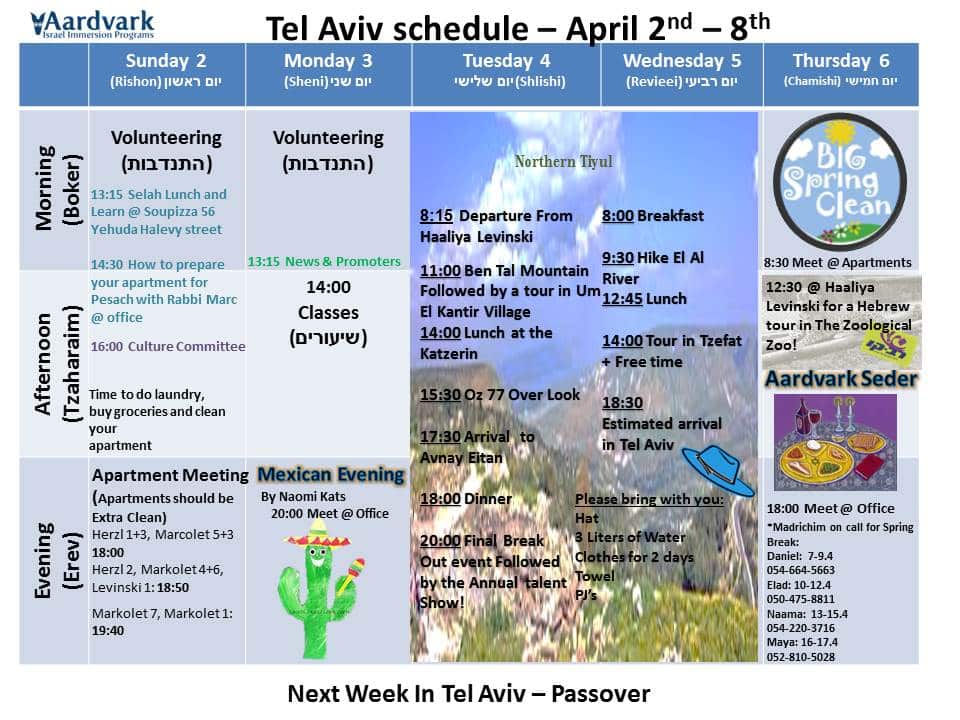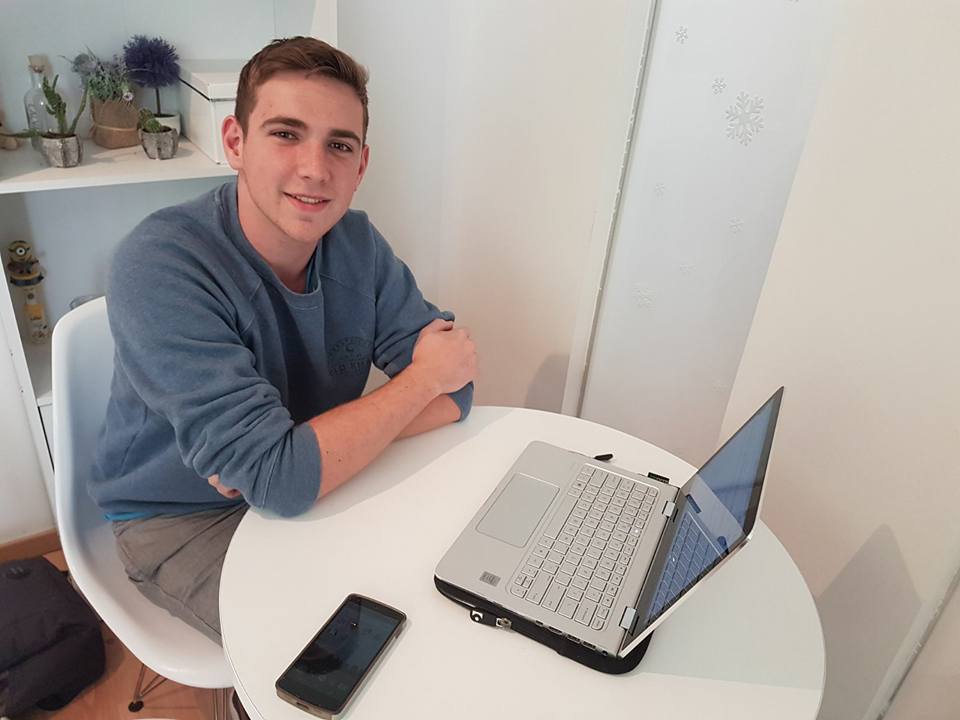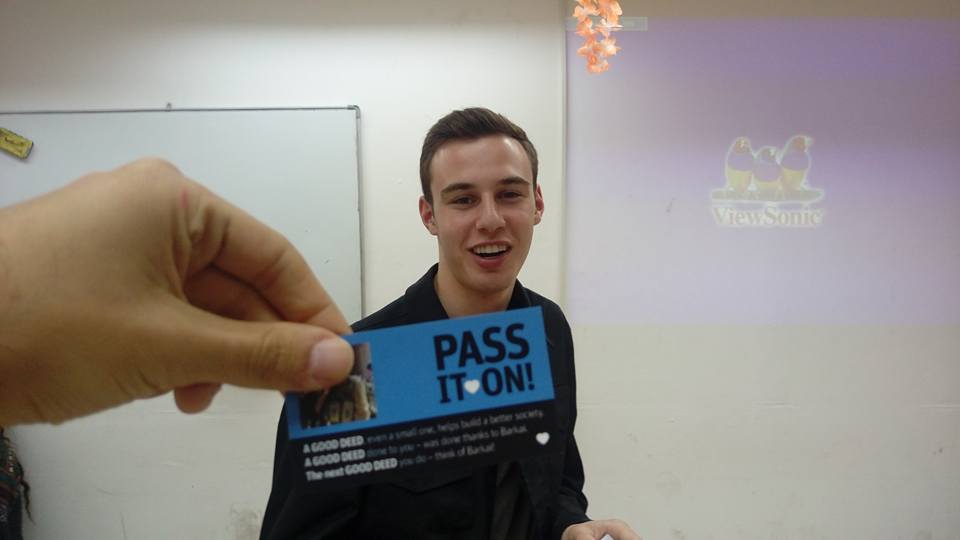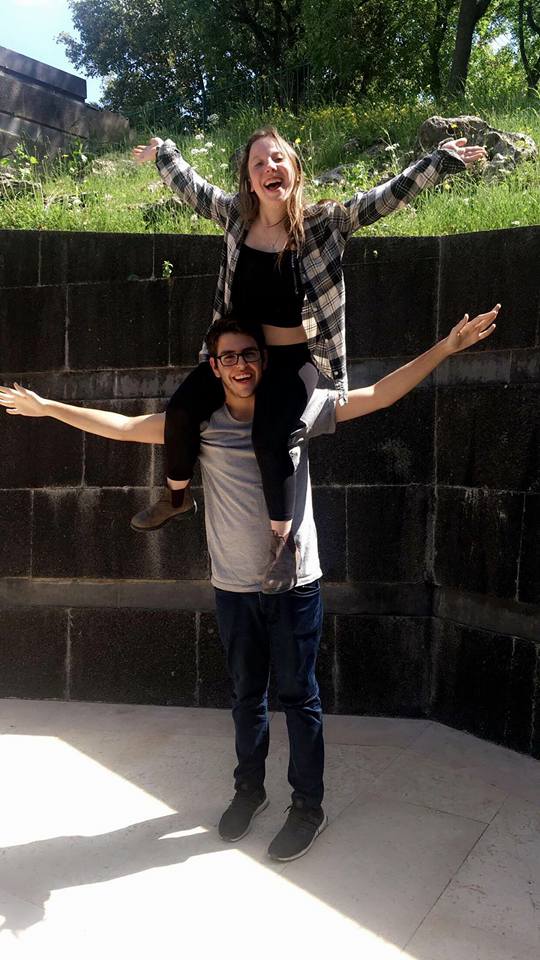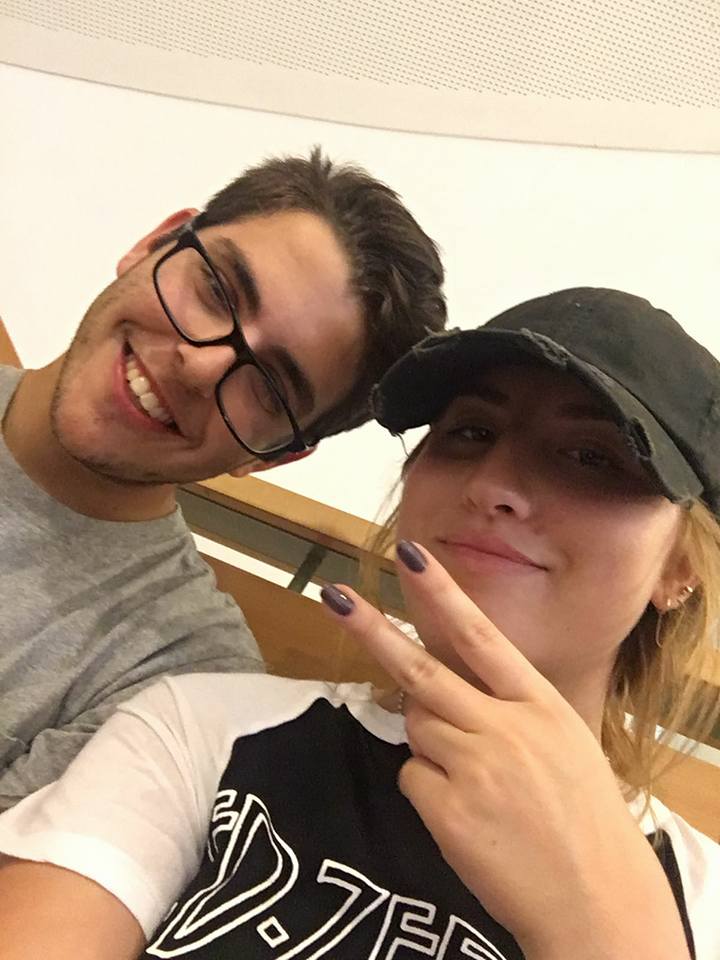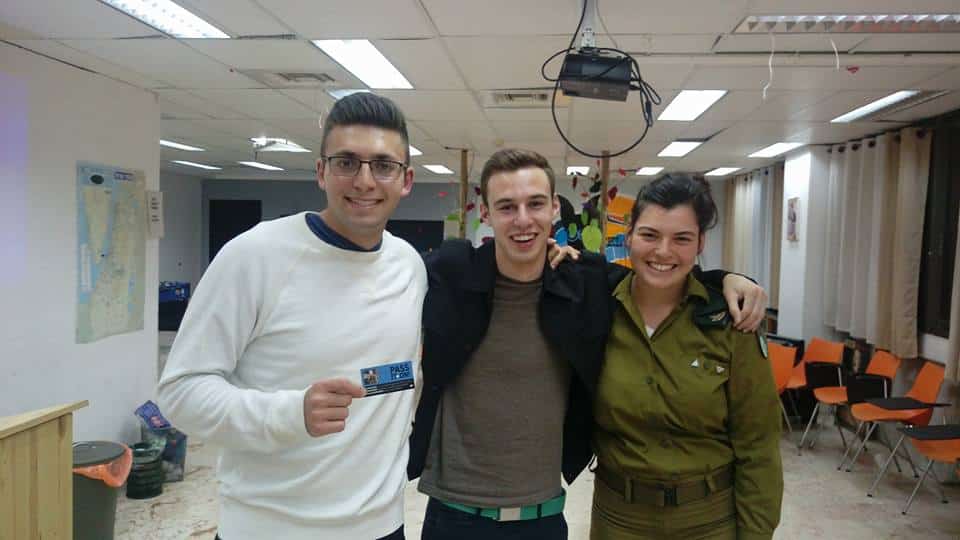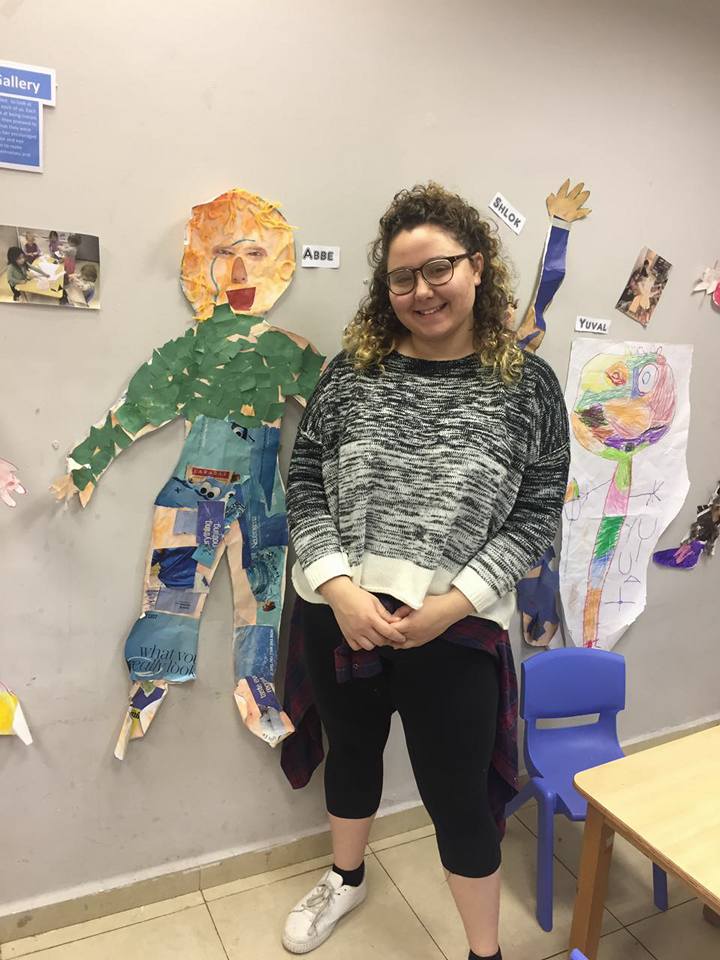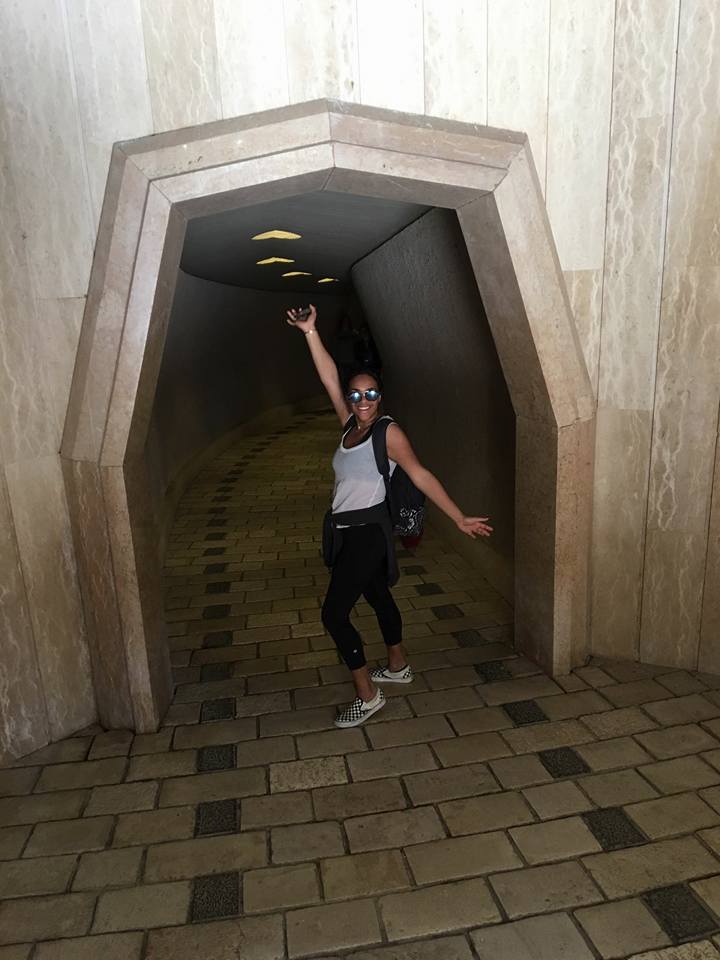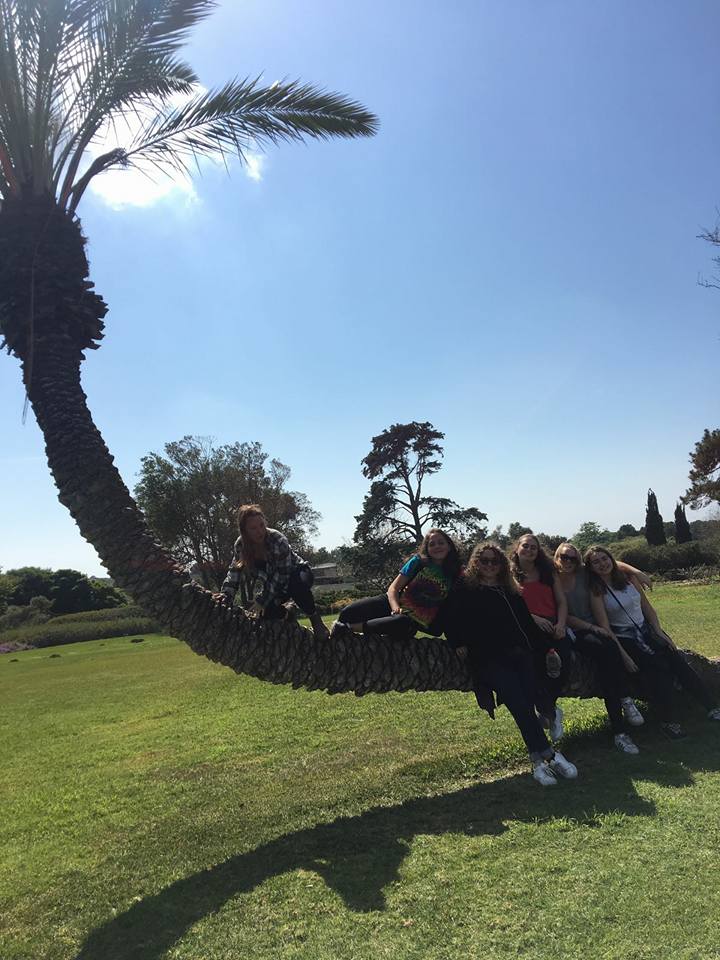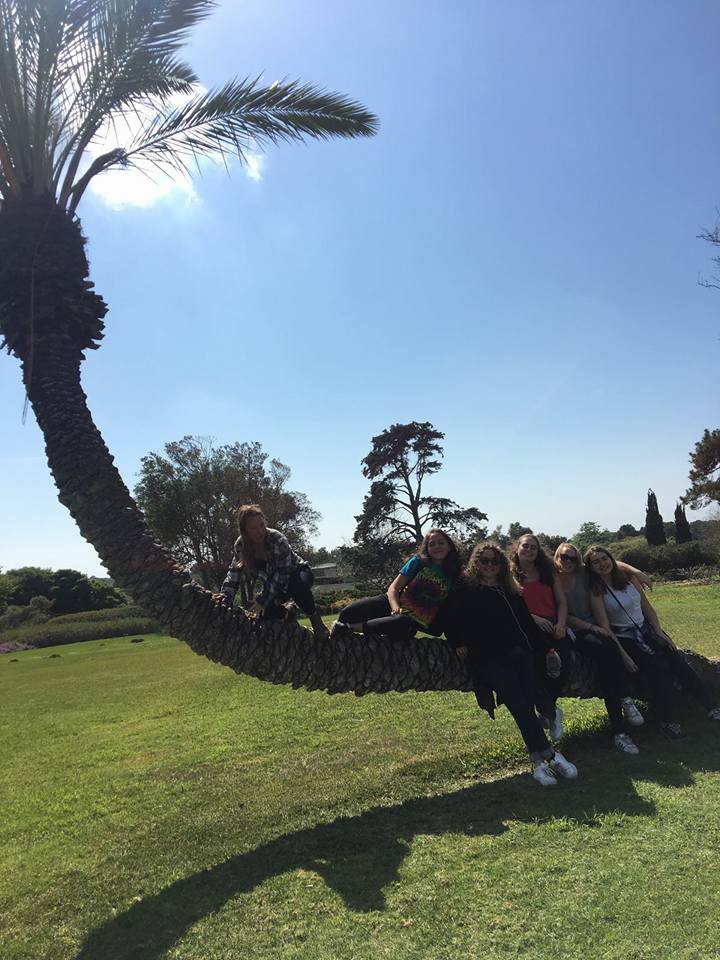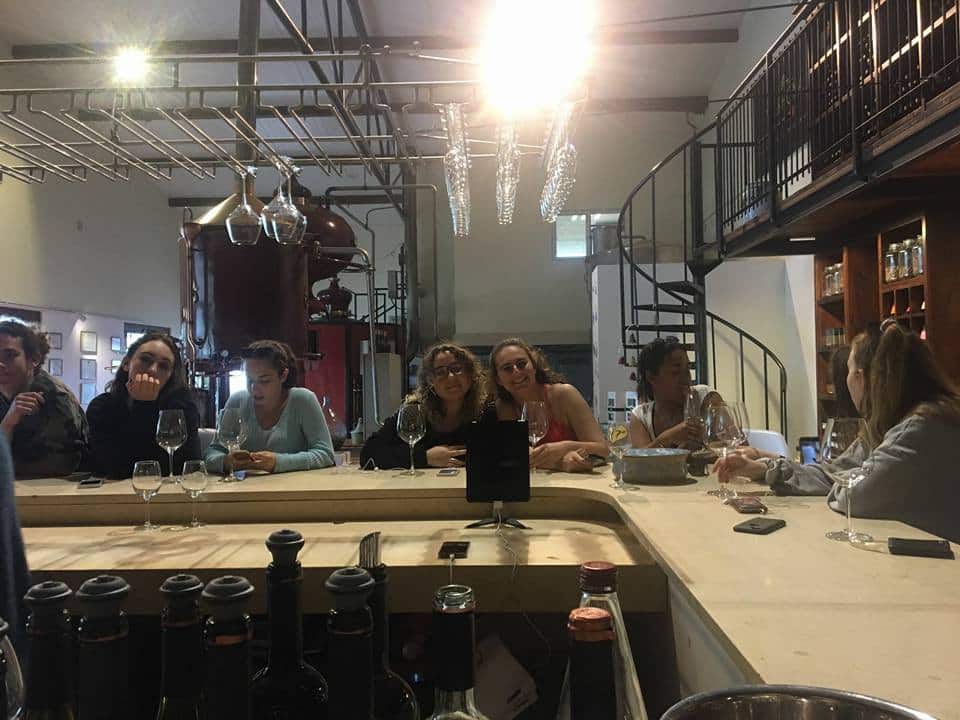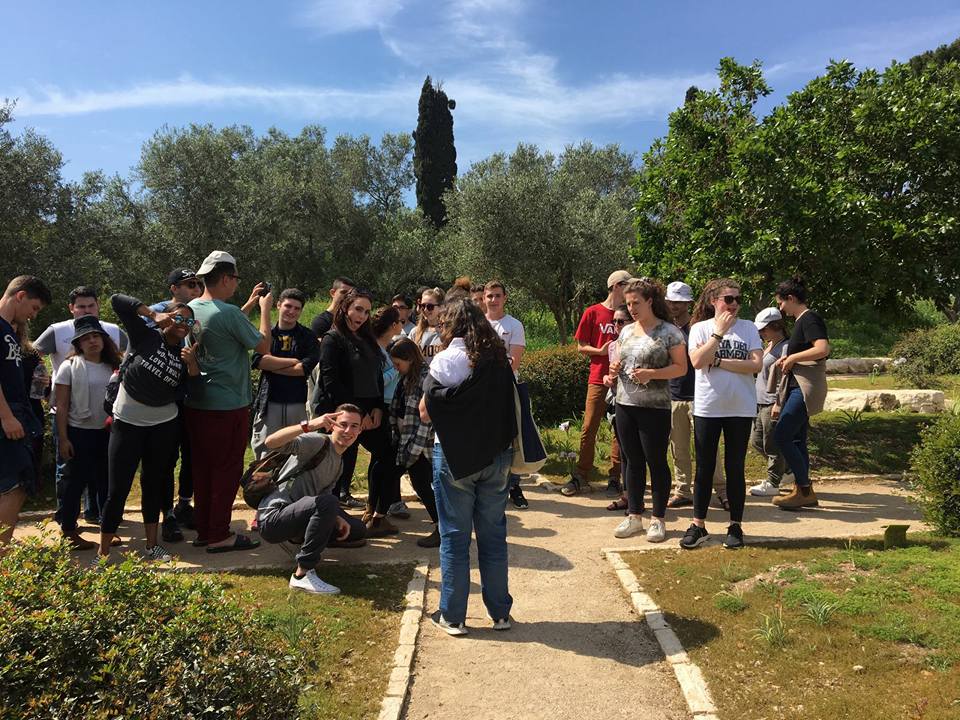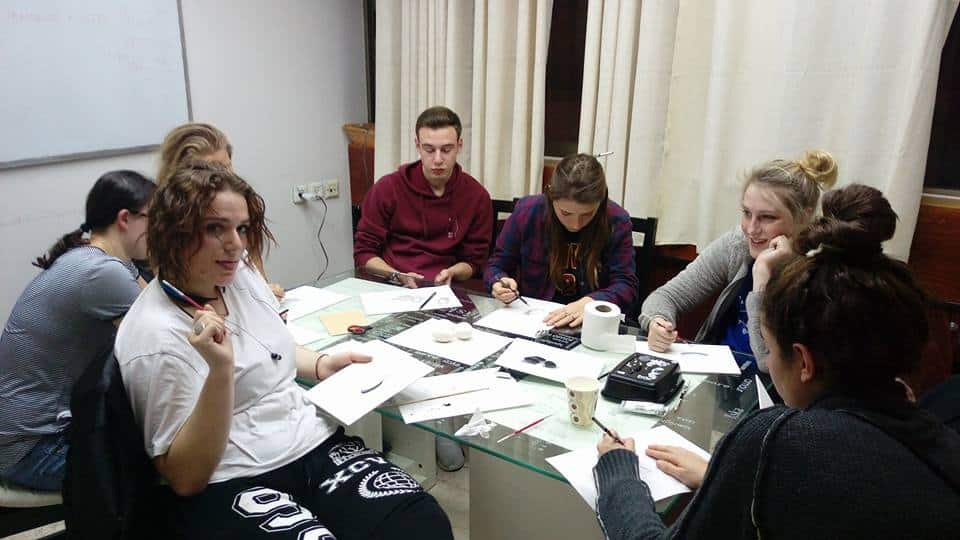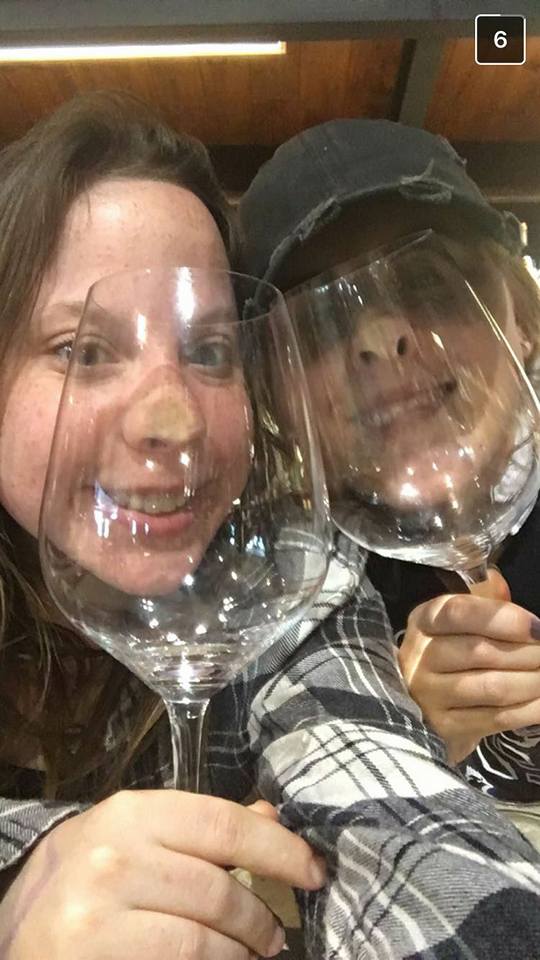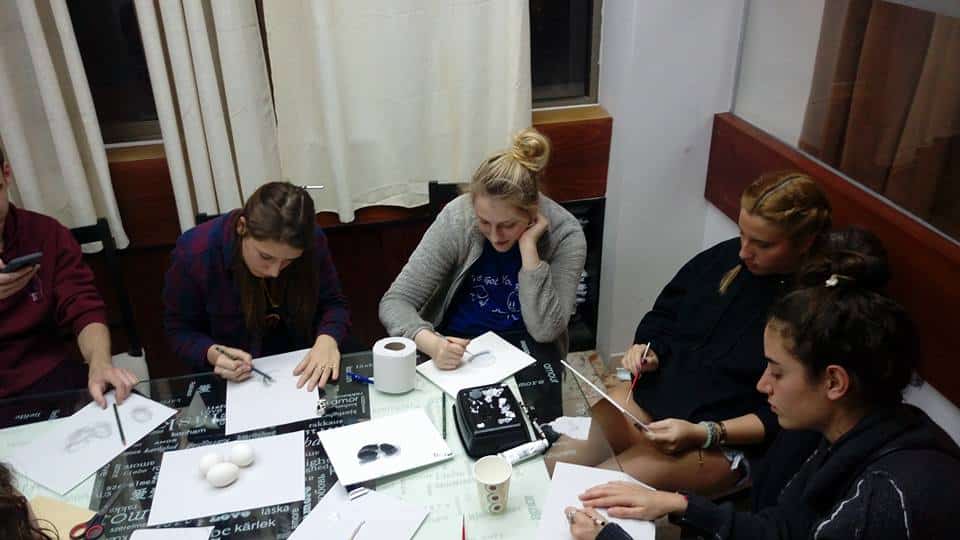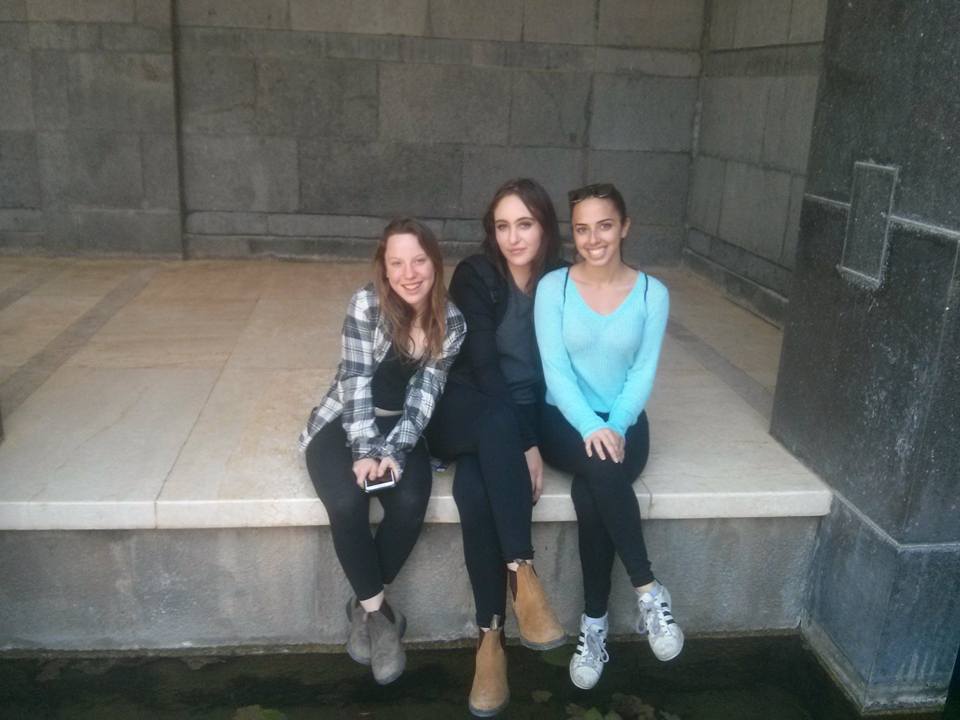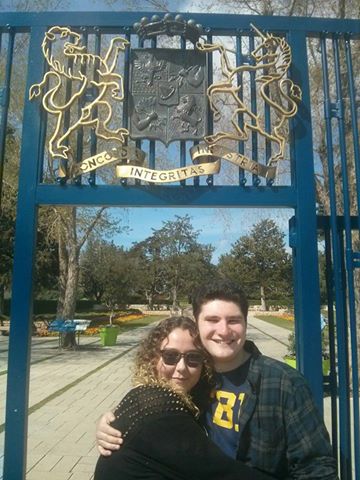Shalom Parents,
March is almost over, Pesach (Passover) is just around the corner and the group and staff are all extremely busy!
Last Sunday, the Madrichim had the feeling that the students needed a little bit of a push for their breakout activities. They met the students in the apartments, turned on some energetic music and dedicated some time to work on it in order to get it done. The students used the time and managed to make a lot of progress.
Max Eisen wrote about Monday evening’s activity:
“On Monday night, after internships, volunteering, and classes were all finished, the students gathered in the office for a program lead by speaker Sharon Voss. The program opened with an introductory activity, during which students were asked questions about things that influence the world and were asked to stand on the letter (A, B, C, or D) that corresponded to their answer. The final question asked was, “Who, in your opinion, has impacted the world the most?” The answers were listed as A. Anne Frank, B. Martin Luther King Jr, C. Someone in your life or D. Barkai Shor. Most students crowded towards the letter A, while, despite the evident confusion over answer D, few stopped to ask who Barkai Shor was. After the students had given short reasons for their answers the program shifted focus towards the discussion of Barkai Shor and his life. Sharon explained that Barkai was an IDF combat soldier who fell in Operation Protective Edge. She went on to explain that Barkai greatly valued the idea of doing good for those around him. In addition to being a frequent volunteer for Magen David Adom, Barkai would often pick up strangers on the side of the road, and drive them to wherever they needed to go. After his passing, Barkai’s parents decided to start the “Barkai Shor – Pay it Forward” initiative. The goal of the movement was to get people around Israel (and the world) to focus more on performing random acts of kindness for others. After discussing the cause and the impact it has had, Sharon handed out “Pay it Forward” cards to each student. The idea of these cards is that once one performs a random act of kindness, the card should be passed on to the recipient of the act, and that person should be motivated to do a good deed for someone else. The program concluded with Sharon explaining that the movement has mainly grown in Israel, with a Hebrew Facebook group the only current outlet for sharing stories of paying it forward. Sharon asked if anyone on the program would be interested in opening an English version of the group. The following day my madrich, Elad Zada, worked with me to create the group. It can be found and joined at the following link: https://www.facebook.com/groups/716888911822711/
Great Job Max!
On Tuesday the students went together to take part in “Good Deeds Day”. Good Deeds Day is an annual event that takes place all over the world. Hundreds of thousands of people choose to volunteer and help others, putting into practice the simple idea that every single person can do something good, be it large or small, to improve the lives of others and positively change the world (click here for more information about it).
It is a big thing in Israel; all educational institutes take a day off classes to go together, teachers, madrichim, students, etc. to do a good deed for someone else. Our Good Deed project was located on one of the most beautiful beaches in Israel, (it is actually rated as the most beautiful but I couldn’t find the article with the listings…) the Habonim Dor Beach Nature Reserve.
We arrived early in the morning to start cleaning the beautiful site. The students were competing amongst themselves to see who could collect the most trash.
Then we moved a little bit to a hill next to the shore to help remove a parasitic plant that attacks the other plants species in the area.
We then began our field trip to Zichron Yaakov which is located 20 min away from the shore we were cleaning. Zichron is an amazing colony that was founded during the first Aliyah and was developed and supported by Baron Edmond Rothschild. We went to the beautiful gardens that were built around the Baron’s grave. After strolling around the gardens the group headed to the grave where they learned that Rothschild is not only a street located five minutes from their apartments, but was also one of the biggest supporters of the founding of the state of Israel.
From the gardens, the group went to Zichron’s promenade to admire the beautiful view and architecture. After some free time on the promenade, the group’s last stop was a visit to the Tishbi Winery which was established in 1882 on Lord Rothschild’s demand.
This week in Parsha and Pizza we discussed the Torah portion of Vayikra. This is the third book of the Torah. In the main, it is concerned with the giving of sacrifices. This is not necessarily an easy subject to discuss in our time but Rabbi Marc began the evening by talking about our relationship to animals in general and the distance most of us feel towards animals. In the ancient world people were far closer to animals. They lived with them, worked with them and also ate them. Rabbi Marc explained the 5 different types of sacrifices and looked at the difference between the voluntary sacrifices and the mandatory ones presented in the Torah. Surprisingly the conversation was very involved and people picked their favorite type of sacrifice. At the core of sacrificing is the idea of drawing closer to God. The Hebrew word for sacrifice is Korban – קרבן – which comes from the root word ‘karov’ which means to be near. We all look for ways to draw near to spirituality, to God or to those people we care for and the system of sacrifices allowed our ancestors to find a very meaningful and personal way to express their gratitude or regret, all within a communal framework.
On Wednesday, an Art workshop (we like to call Aartvark) took place in the office. Elad, our great madrich, is a highly skilled painter (he learned art and design in one of the leading art high schools in Israel). After talking with some of the students who were very excited about the workshop, he decided to run some activities to develop artistic skills. According to Elad the most difficult shape to draw is of an egg. He brought two packs of eggs (along with some cool drawing equipment) and a little group was up to the challenge. Sarah Ekwall showed off her skills as a natural egg painter!
In social psychology, the students are learning that the biggest motivator of human thought and behavior is cognitive dissonance. Recent research has indicated that dissonance is most powerful and most upsetting when people behave in ways that threaten their self-image. This happens because it forces us to confront the discrepancy between who we think we are and how we truly behaved. There are three ways to reduce cognitive dissonance: (1) By changing our behavior to bring it in line with the dissonant cognition (2) By attempting to justify our behavior through changing one of the dissonant cognitions and (3) By attempting to justify our behavior by adding new cognitions.
This week on Selah we had a Lunch and Learn with Rabbi Marc where we studied a section of the Haggada for Pesach. We read from the beginning of ‘Magid’ with the words ‘Ha Lachma Anya’ – this is the bread of affliction. We learnt some of the teachings of Rav Kook and Rabbi Shlomo Carlebach that tell us to be sensitive to other people and to take the symbol of matzah as being a trigger for thinking about being hungry – metaphorically hungry. What are the things we truly need in life? What do we have or do that is superfluous? At Tuesday night’s Bet Midrash we had a guest speaker, Rabbi David Eshel from Wilshire Boulevard Temple in Los Angeles. He spoke to the group about the importance of sunscreen! Really. He used sunscreen as a metaphor for the need to protect ourselves from things that are great (the sun) but that can also do harm (sunburn). The group were encouraged to think about the boundaries they have in their lives and in their Judaism. Thursday morning saw the group head to Neve Shechter – a Conservative synagogue in Neve Tzedek where they met with Rabbi Miriam Berkowitz who is the founder of an Israeli organization called Kashouvot that trains chaplains in Israel. Miriam taught us some Talmud and led a discussion about the value and practice of Bikur Cholim – visiting the sick.
That will be all for now
Until next time,
Shabbat Shalom,
Adi.
